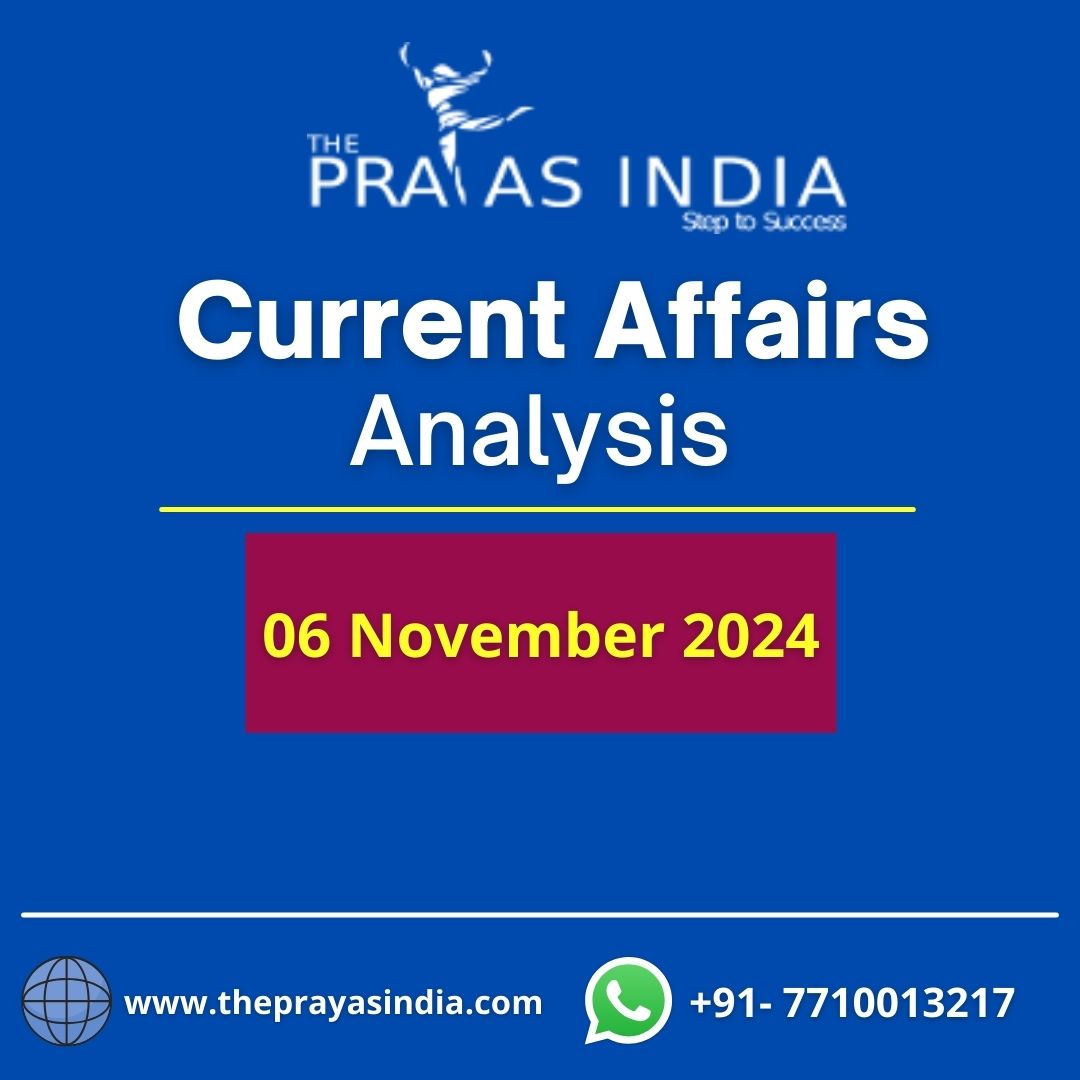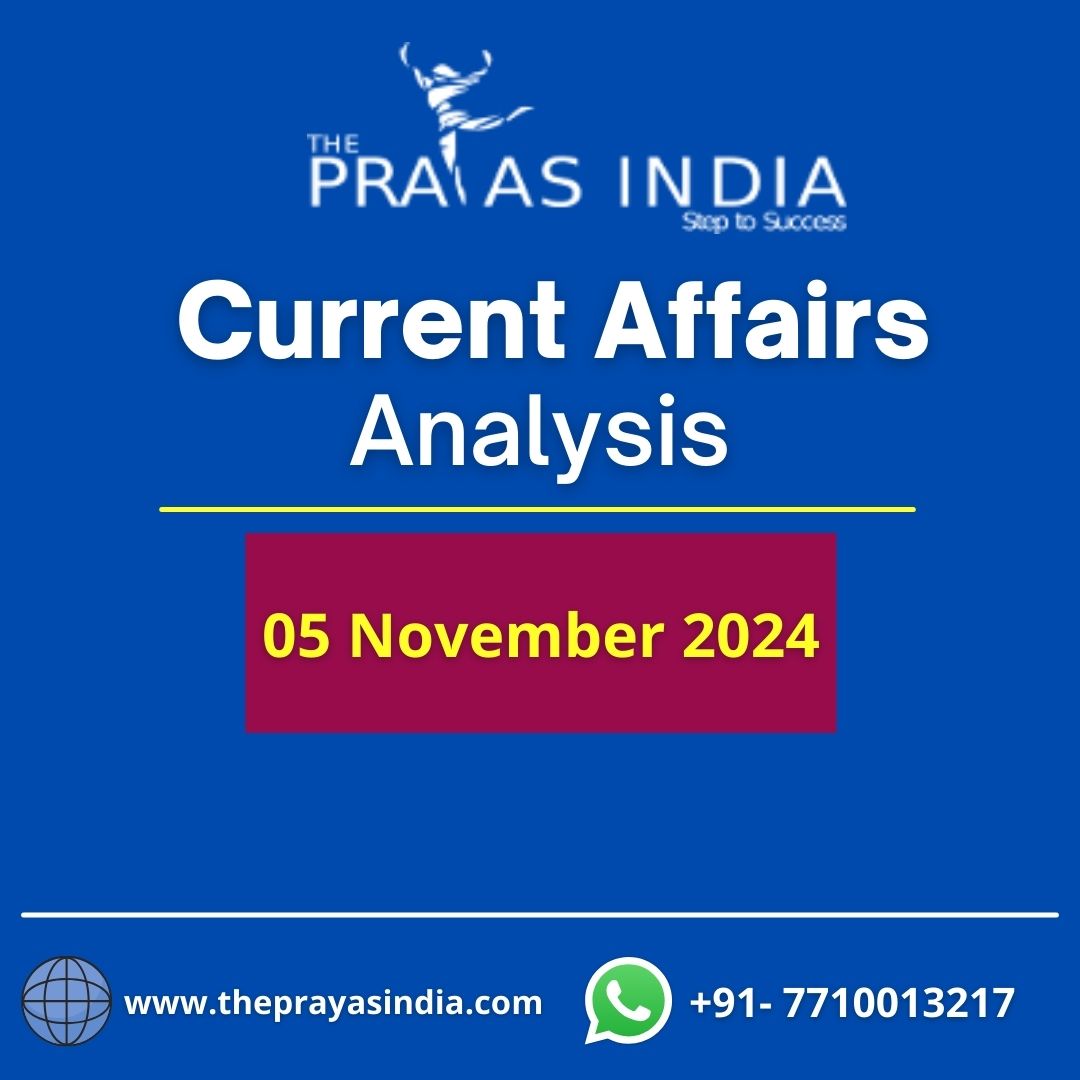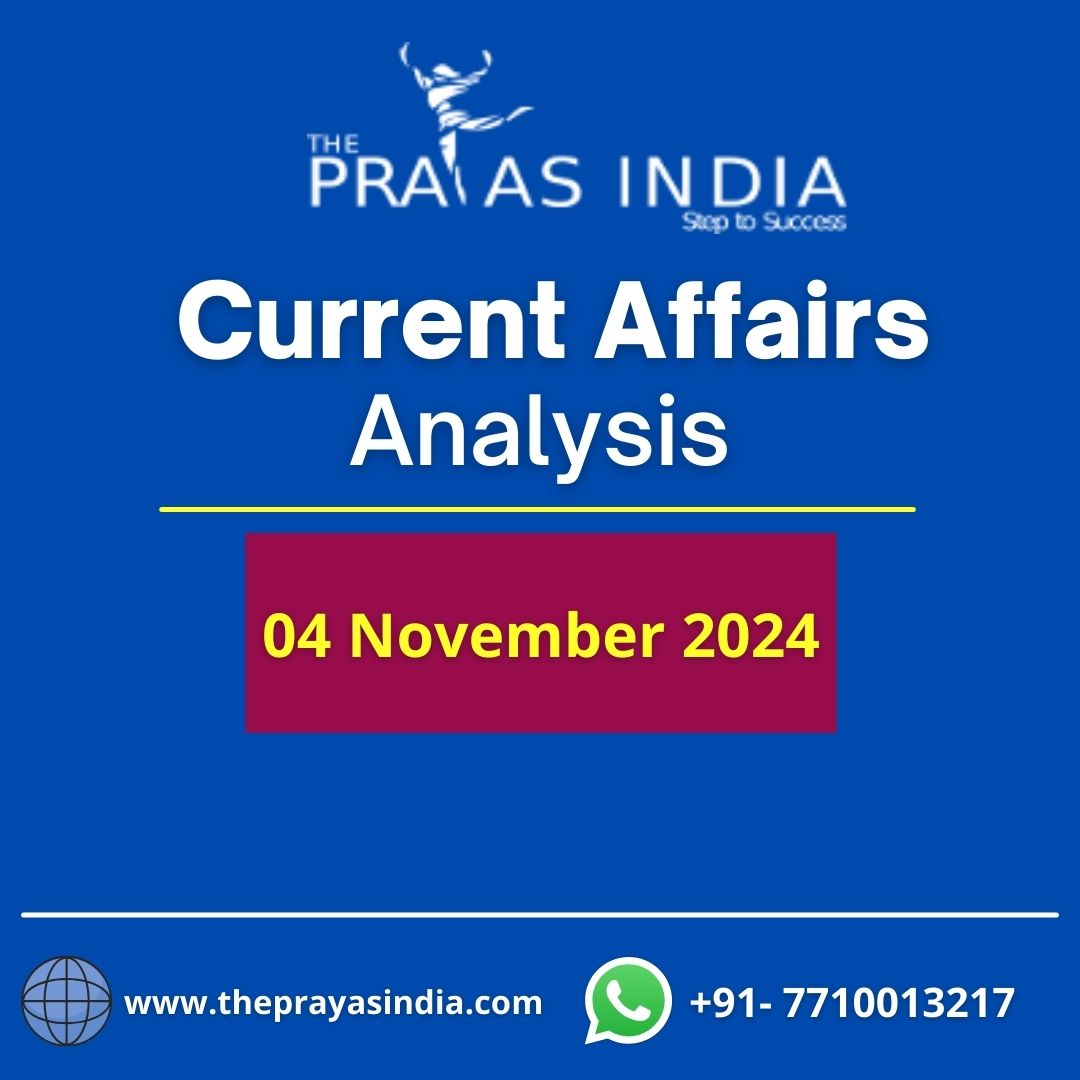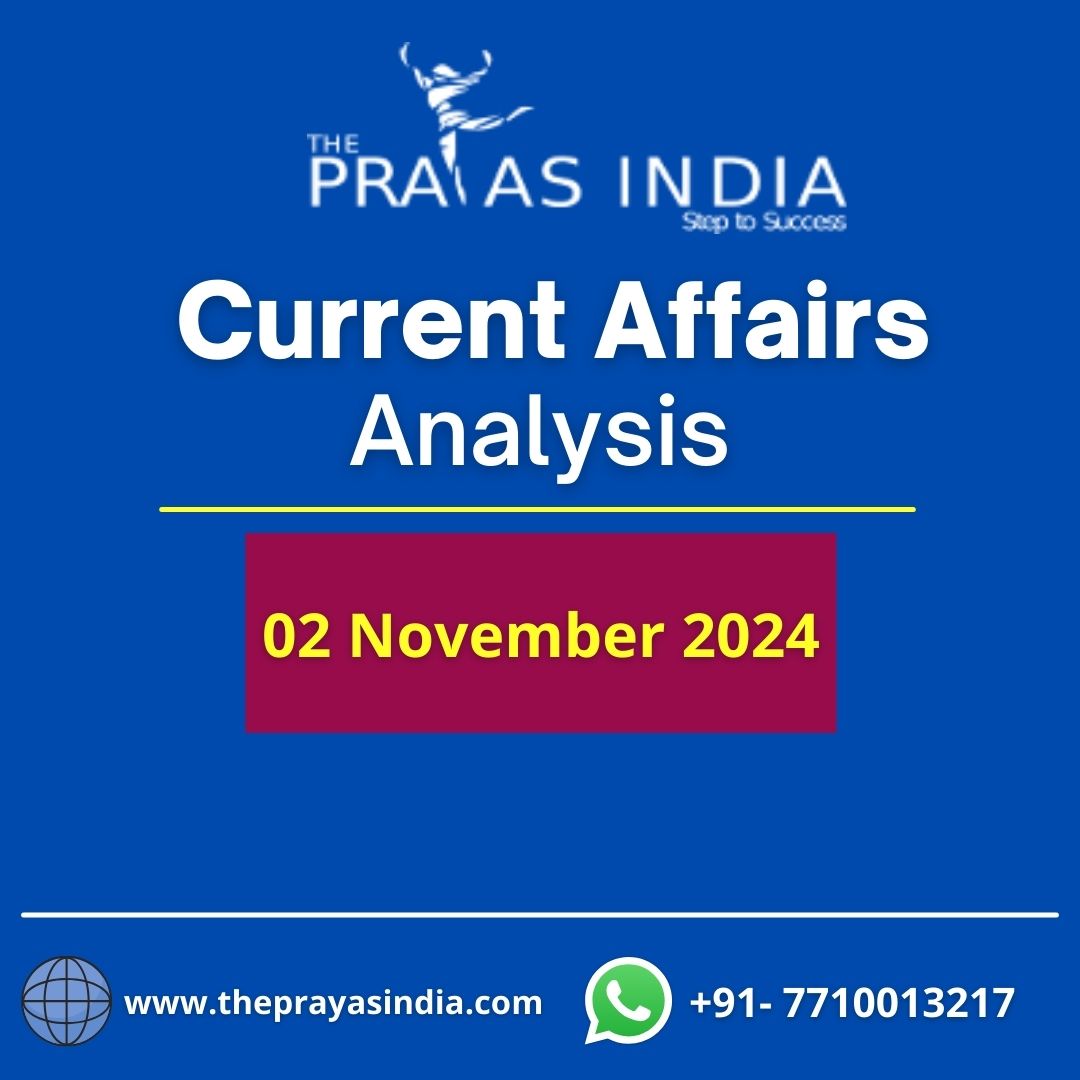DAILY CURRENT AFFAIRS ANALYSIS
| No. | Topic Name | Prelims/Mains |
| 1. | About the STAR Rating of FSSAI | Prelims & Mains |
| 2. | Details of the World Food Programme | Prelims & Mains |
| 3. | About the Citizenship Amendment Act, 2019 | Prelims & Mains |
| 4. | Details of the Section 143 of the IPC | Prelims Specific Topic |
1 – About the STAR Rating of FSSAI: GS III – Environmental Conservation-related issues
The Star Rating of the FSSAI:
- In its draught regulations for front of package labelling, the FSSAI agreed in February 2022 to adopt the “health-star rating system,” which assigns a product 1/2 to 5 stars (FOPL).
- Its goal is to assist consumers in reducing their consumption of unhealthy foods.
- The HSR format assigns a rating to a packaged food item based on its salt, sugar, and fat content, which is printed on the front of the package.
- The HSR’s fundamental principle is that good components like fruits and nuts can be used to offset bad nutrients like calories, saturated fat, total sugar, and sodium when determining a product’s star rating.
Applicability:
- The HSR label will appear on all packaged or processed foods. Chips, biscuits, namkeen, sweets and chocolates, beef nuggets, and cookies will be among them.
- Exemptions: According to the FSSAI draught notified in 2019, milk and its products such as chenna and ghee are EXEMPTED.
HSR is required:
- Many Indian customers do not read the information on the back of packaged food products.
- In addition, India has a significant burden of noncommunicable diseases, which account for 5.87 million (60 percent) of all fatalities each year.
- HSR will motivate people to adopt healthier choices and may result in societal transformation.
Why is it being fought against?
- Some academics argued against using the HSR model in India, claiming that customers would interpret it as a positive affirmation of health benefits rather than a negative warning of harmful consequences.
- Impact on Sales: Some organisations are concerned that it may affect the selling of particular food items.
FSSAI:
- The Food Safety and Standards Act of 2006 established the Food Safety and Standards Authority of India (FSSAI) (FSS Act).
Source The Indian Express
2 – Details of the World Food Programme: GS II – International Organizations
What is the UN World Food Programme?
- The United Nations’ World Food Programme (WFP) is the world’s biggest humanitarian agency dedicated to fighting hunger and increasing food security.
- The World Food Programme, established in 1961, aims to eliminate hunger and malnutrition, with the ultimate goal of eliminating the need for food aid.
- It is a member of the Executive Committee of the United Nations Development Group.
- WFP food aid is also used to address malnutrition, reduce child mortality, enhance maternal health, and battle diseases like HIV and AIDS.
It collaborates closely with the other two UN organisations stationed in Rome:
- The Food and Agriculture Organization (FAO) assists countries in developing policies and changing laws to support sustainable agriculture.
- The International Fund for Agricultural Development (IFAD) is a non-profit organisation that funds projects in impoverished rural areas.
Funding:
- The WFP receives all of its funding from voluntary donations and has no other sources of income. Governments are the organization’s primary donors, but it also gets contributions from the commercial sector and individuals.
Source The Indian Express
3 – About the Citizenship Amendment Act, 2019: GS II – Constitutional Amendments related issues
The Citizenship (Amendment) Act (CAA) of 2019:
- Parliament enacted it on December 11, 2019, and the Act was communicated on December 12 within 24 hours.
- It aims to make changes to the Citizenship Act of 1955.
- Citizenship can be obtained in a variety of methods under the Citizenship Act of 1955.
- It establishes citizenship by birth, descent, registration, naturalisation, and territorial integration into India.
CAA Information:
- The CAA’s goal is to offer Indian citizenship to persecuted minorities from Pakistan, Bangladesh, and Afghanistan, including Hindus, Sikhs, Jains, Buddhists, Parsis, and Christians.
- Those from these communities who came to India before December 31, 2014 to escape religious persecution in their home countries would not be considered illegal immigrants and will be granted Indian citizenship.
- The Act states that the central government has the authority to terminate OCI registrations for specific reasons.
Exceptions:
- Due to its inclusion in the Constitution’s 6th Schedule, the Act does not apply to the tribal areas of Tripura, Mizoram, Assam, and Meghalaya.
- Areas that lie inside the Bengal Eastern Frontier Regulation, 1873’s Inner Limit will likewise be exempt from the Act’s reach.
Concerns about the law:
- It goes against the Constitution’s fundamental principles. Illegal immigrants are classified according to their religion.
- Indigenous groups regard it as a demographic threat.
- It allows illegal aliens to apply for citizenship based on their religion. This could be in violation of Article 14, which ensures the right to equality.
- It makes an attempt to naturalise illegal immigrants in the region.
- It allows for the cancellation of an OCI registration for any reason. This is a broad category that could include a variety of offences, including minor infractions.
Source The Indian Express
4 – Details of the Section 143 of the IPC: Prelims Specific Topic
- In a five-year-old case, a local magisterial court in Gujarat’s Mehsana found Jignesh Mevani, a leading activist and independent MLA, and nine others guilty of taking out a ‘Azadi march’ without police permission in July 2017.
- They were found guilty under Indian Penal Code section 143.
- According to Section 143, “Whoever is a member of an unlawful assembly must be punished by imprisonment of either sort for a term not exceeding six months, fine, or both.”
Source The Indian Express




